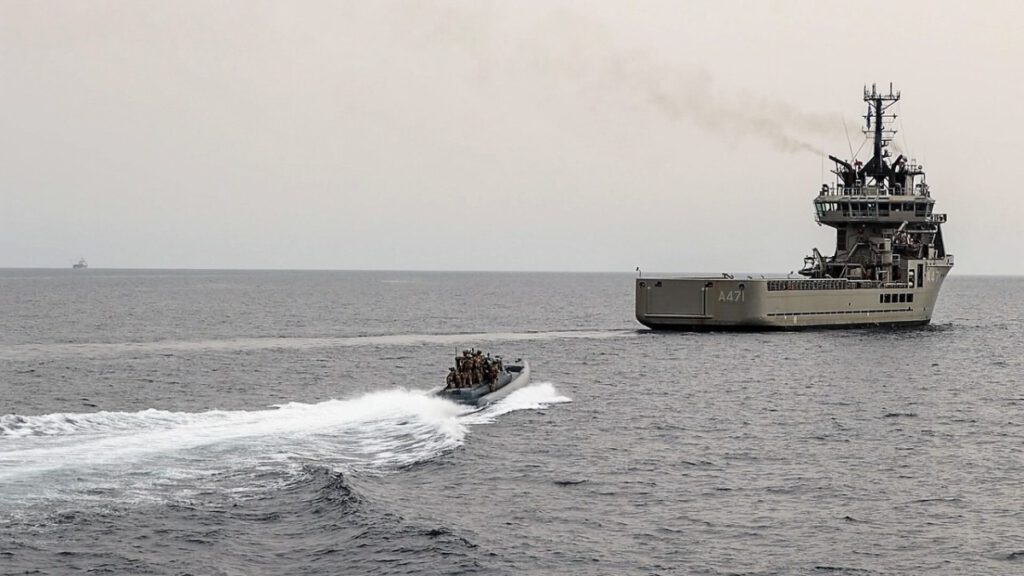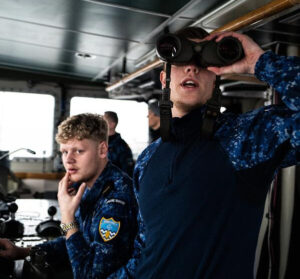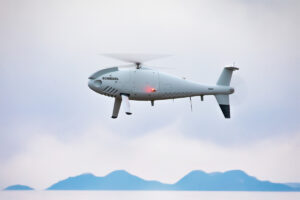
NORTHWOOD, United Kingdom – NATO’s Operation Sea Guardian (OSG) practiced the activation of a standby unit to conduct a scenario based maritime security exercise. The scenario involved an opposed boarding, developed in international waters of the Southern Aegean Sea. The exercise took place from 28 March to 8 April.
OSG is a standing Maritime Security Operation working with Mediterranean stakeholders to deter terrorism and mitigate the risk of other threats to security in the Mediterranean Sea. The Hellenic Navy offered the missile patrol boat HS Roussen to conduct the training and the support ship HS Atlas playing the role of MV Unknown, a fictitious name for the suspected vessel.
The boarding exercise was the culmination of a command and control exercise conducted at Allied Maritime Command (MARCOM). The MARCOM staff had examined the simulated intelligence information and in coordination with the Task Group, the Hellenic Navy and other participating agencies. Based on a pattern of illegal activities, possibly linked to terrorism, terrorism related or transnational threatening criminal activities, the decision was then made to investigate MV Unknown. MARCOM staff then worked through the planning of operational and tactical requirements; including legal aspects, rules of engagement, communications and administrative requirements to support the activated unit.
The boarding was performed by Hellenic Navy Special Operation Forces (SOF) and supported by the Hellenic Navy Special Operations Command and Control Element (SOCCE). In the theatre of operations, SOCCE has the ability, while conducting special operations, to take command of assigned Special Forces. In NATO, the Turkish Navy and the Hellenic Navy have established in permanency SOCCE elements to support NATO Special Forces operations.
Story by Public Affairs Office at MARCOM



